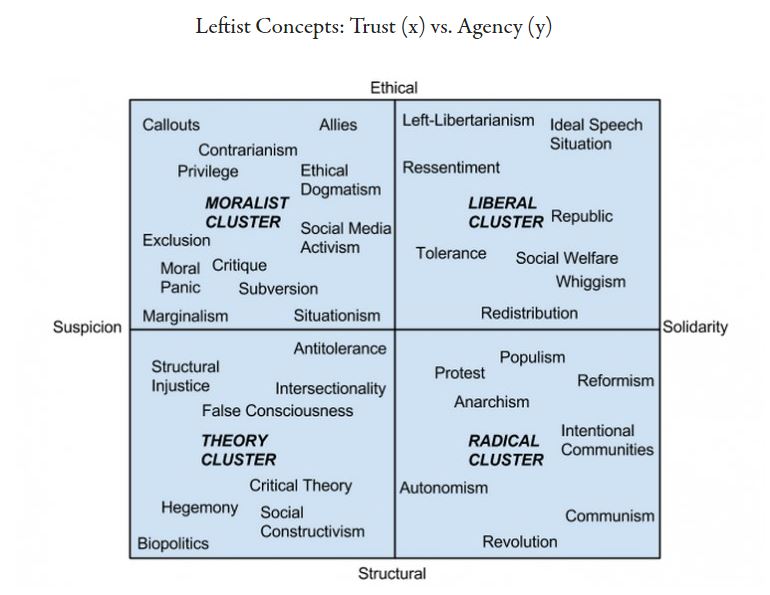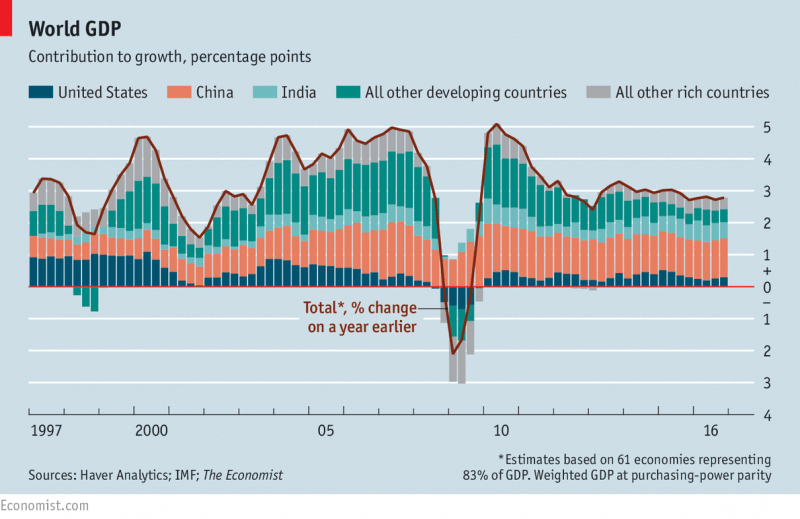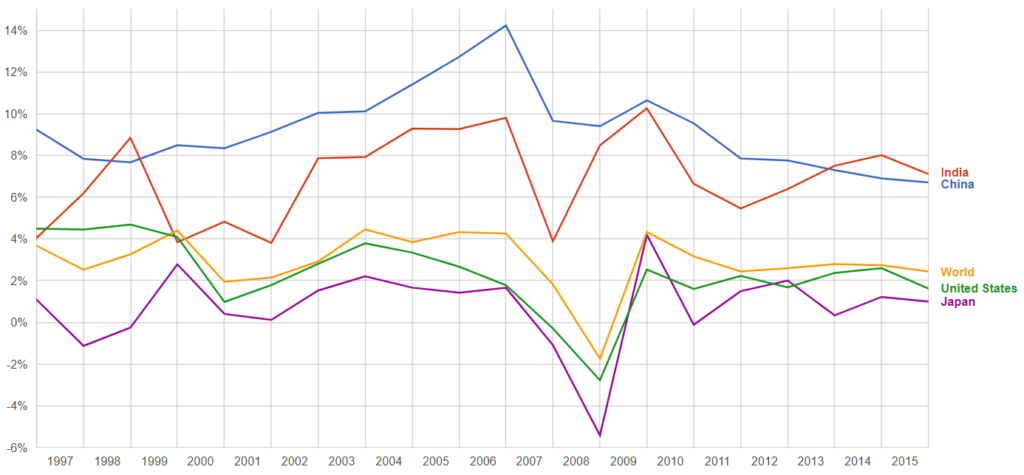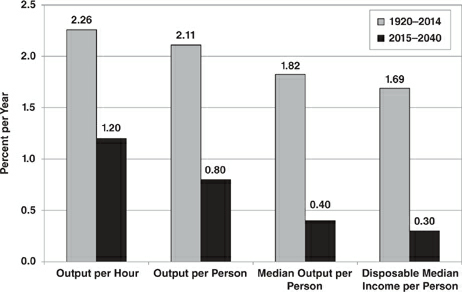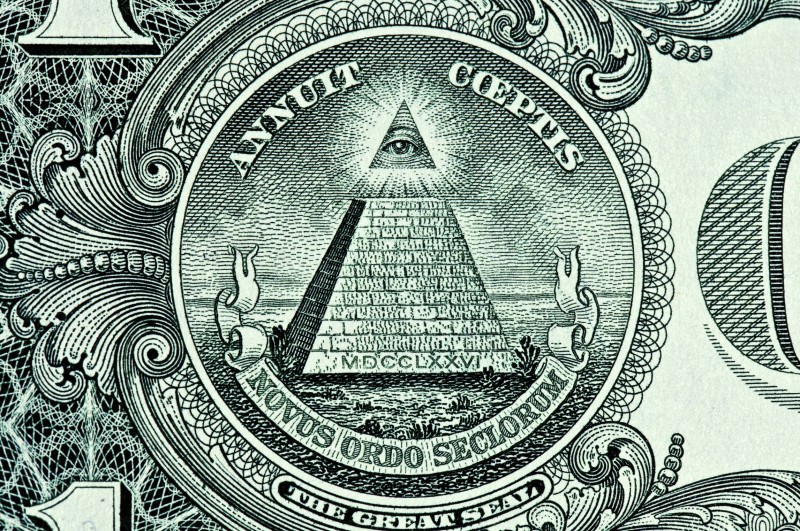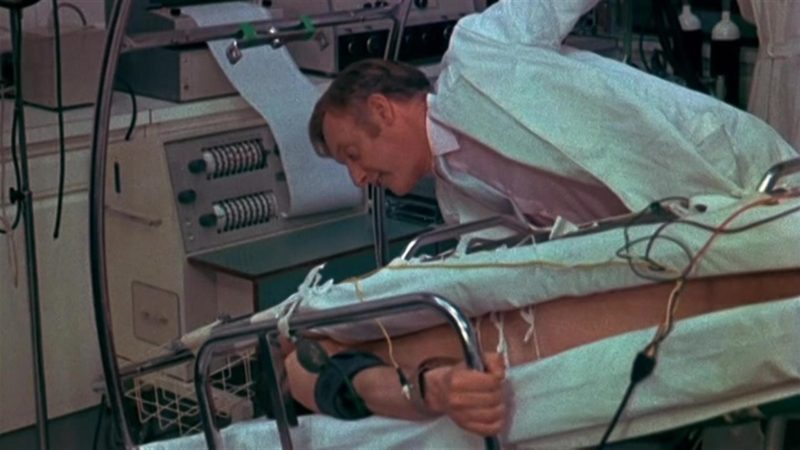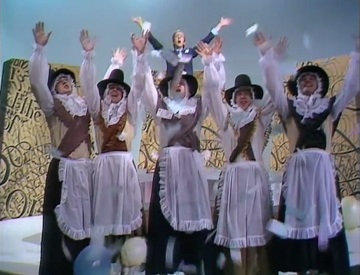- Georg Simmel’s Philosophy of Money: An Introduction
- Georg Simmel’s Philosophy of Money: 1. Value and Money
- Georg Simmel’s Philosophy of Money: 2. The Value of Money as a Substance
- Georg Simmel’s Philosophy of Money: 3. Money in the Sequence of Purposes
- Georg Simmel’s Philosophy of Money: 4. Individual Freedom
- Georg Simmel’s Philosophy of Money: 5. The Money Equivalent of Personal Values
- Georg Simmel’s Philosophy of Money: 6. The Style of Life
Is money a means or an end? If any purpose we may pursue can be quantified by monetary value, what effect does that have on the meaning of that purpose? We use money as an abstract intermediary to achieving a certain, more concrete ends, but those ends in turn lose their absolute, incomparable value by being expressed and paid for in terms of empty cash.
In this final chapter, Simmel pulls back to examine the structural role money possesses in modern cosmopolitan life–and ultimately, the entire cosmos (really). For money is not just grease on the wheels of capitalism, but constitutes the essential link between the disparate pieces of life that have been joined together through the growing and increasingly interdependent world. Without money, the pieces could not join.
(This is, indeed, why socialism and communism could not do without money as an abstract conception. Some content-free form of universal valuation would still be necessary for a socialist or communist system to exist. Perhaps there wouldn’t be currency or private ownership, but money-as-a-measure would persist.)
Simmel’s answer is that money, being means and end simultaneously, breaks down the distinction.
Money is everywhere conceived as purpose, and countless things that are really ends in themselves are thereby degraded to mere means. But since money itself is an omnipresent means, the various elements of our existence are thus placed in an all-embracing teleological nexus in which no element is either the first or the last. Furthermore, since money measures all objects with merciless objectivity, and since its standard of value so measured determines their relationship, a web of objective and personal aspects of life emerges which is similar to the natural cosmos with its continuous cohesion and strict causality. This web is held together by the all-pervasive money value, just as nature is held together by the energy that gives life to everything. Like money, energy appears in innumerable forms, but the uniformity of its very nature and the possibility of transforming any specific form into any other results in a relationship between all of them and makes each of them a condition of any other. Just as every emotional accentuation has disappeared from the interpretation of natural processes and has been replaced by an objective intelligence, so the objects and relationships of our practical world, inasmuch as they form increasingly interconnected series, exclude the interference of emotions. They become merely objects of intelligence and appear only at the teleological terminal points. The growing transformation of all elements of life into means, the mutual connection of sequences that previously terminated in autonomous purposes with a complex of relative elements, is not only the practical counterpart of the growing causal knowledge of nature and the transformation of its absolutes into relativities. Rather, since the whole structure of means is one of a causal connection viewed from the front, the practical world too increasingly becomes a problem for the intelligence. To put it more precisely, the conceivable elements of action become objectively and subjectively calculable rational relationships and in so doing progressively eliminate the emotional reactions and decisions which only attach themselves to the turning points of life, to the final purposes.
In imagery that anticipates Henry Adams’ dynamo, Simmel paints the modern “web” as a world in which monetary valuations and bonds have generated an autonomous chain of forces which individuals cannot overcome. No matter what emotion, force, or purpose humans may bring to the web of life, there is no way to replace money as the central structuring element, nor could there be, since only a neutral, empty form of value such as money could serve the purpose of joining together the varied pieces of the web. In Kantian terms (for this is surely what Simmel is echoing as well), money is a necessary condition for the possibility of modern life, as are its consequences.
Financiers are the avatars of this society. Unlike artists, philosophers, or even politicians, they approach money from the most neutral of positions, and so are most capable of tracking its workings without bias.
Those products of an urban existence whose sole aim is to make money by any means possible therefore need the intellect as a general function all the more because specialized knowledge is out of the question for them. They form a major contingent of that type of insecure personality which can hardly be pinned down and ‘placed’ because their mobility and their versatility saves them from committing themselves, as it were, in any situation.
Money places the actions and relations of men quite outside of men as human subjects, just as intellectual life—in so far as it is purely intellectual—moves from personal subjectivity into the sphere of objectivity which it only reflects. This obviously implies a relationship of superiority. Just as he who has money is superior to he who has the commodity, so the intellectual person as such has a certain power over the more emotional, impulsive person. For however much the latter may be more valuable as a whole person, and however much his powers may ultimately surpass the other, he is more one-sided, more committed and prejudiced than the intellectual person; he does not have the superior view and the unlimited possibilities of the use of all practical means that the purely intellectual person has. It is this factor of superiority, common to both money and intellectuality by virtue of their objectivity towards any particular life contents, that prompted Comte to place bankers at the head of secular government in his utopian state, because bankers formed the class with the most general and abstract functions.
Once again, Albert Hirschman chronicled the early arguments for capitalism which depicted it as a welcomee suppressant of humans’ most impulsive and emotional instincts. But it is not just that they are more rational and dispassionate, but that they are more fundamentally empty, seeing their goal purely as a maximization of monetary value in the absence of any particular form that value may take. This in turn redefines logic and rationality themselves as things which cannot attach themselves to any particular end. Simmel implies that the increasingly technical and hermetic character of modern philosophy is a consequence of money squeezing it out of being able to make a case for any greater telos.
As a result, only self-interested action is considered to be genuinely and simply ‘logical’. All devotion and self-sacrifice seems to flow from the irrational forces of feeling and volition, so that men of pure intellect treat them ironically as a proof of lack of intelligence or denounce them as the disguise of a hidden egoism. This is certainly mistaken since even the egoistic will is just as much a will as the altruistic will and can just as little be squeezed out of merely rationalistic thought.
He compares money with two other formal, universal systems, law and logic, which also remove circumstantial particulars.
Money is completely adaptable to any use without any relationship of its quality to that of the real objects thereby bringing about any specific encouragement or obstruction. Money is therefore similar to the forms of logic which lend themselves equally to any particular content, regardless of that content’s development or combination. It thus grants the same chances to representation and formal correctness to the objectively most nonsensical and detrimental contents as it does to the most valuable. Furthermore, money is also analogous to the schemes of law which often enough lack safety devices for preventing the most serious injustice from being endowed with an unimpeachable formal righteousness.
All three factors—the law, intellectuality and money—are characterized by their complete indifference to individual qualities; all three extract from the concrete totality of the streams of life one abstract, general factor which develops according to its own independent norms and which intervenes in the totality of existential interests and imposes itself upon them. In that all three of them have the power to lay down forms and directions for contents to which they are indifferent, they necessarily inject those contradictions into the totality of life which concern us here. Wherever equality impinges upon the formal foundations of human relationships, it serves to express individual inequalities most pointedly and far-reachingly. By observing the limits imposed by formal equality, egoism need no longer concern itself with internal and external barriers. It possesses, in the general validity of that equality, a weapon which, by serving anyone, may also be used against anyone.
While I think the comparison with formal logic is apt and well-taken, law is a trickier case. The paradox of law is how unable it is to completely remove itself from particulars, and how each application of precedent has some wiggle room in which a new case refines the precedent set before it. In this law is far closer to the messiness of language than it is to the all-leveling empty universalism of money or logic.
Yet Simmel has a point when he writes, anticipating Musil in The Man Without Qualities, that intellectual activity is falling into being technical bean counting rather than the questioning of the precepts of life (those precepts having been ripped away by money).
Just as the objectivity of money permits ‘work’ that is ultimately relatively independent of personal energies and the accumulating returns lead automatically to more accumulation in growing proportions, so the objectification of knowledge, the separation of the results of intelligence from its process, causes these results to accumulate in the form of concentrated abstractions, so that, if only one stands high enough, they may be picked like fruits that have ripened without any effort on our part.
And this in turn is because the subjects of intellectual life, just like the products of work, leave us little with which we can engage. Our relationship to any particular object or activity is by default partial and haphazard, since integral relationships are no longer required in the web. Objects drift in and out of our lives
Just as freedom is not something negative but rather is the positive extension of the self into the objects that yield to it, so, conversely, our freedom is crippled if we deal with objects that our ego cannot assimilate. The sense of being oppressed by the externalities of modern life is not only the consequence but also the cause of the fact that they confront us as autonomous objects. What is distressing is that we are basically indifferent to those numerous objects that swarm around us, and this is for reasons specific to a money economy: their impersonal origin and easy replaceability. The fact that large industrial concerns are the breeding ground for socialist ideas is due not only to the social conditions of their workers, but also to the objective quality of their products. Modern man is so surrounded by nothing but impersonal objects that he becomes more and more conditioned into accepting the idea of an antiindividualistic social order—though, of course, he may also oppose it. Cultural objects increasingly evolve into an interconnected enclosed world that has increasingly fewer points at which the subjective soul can interpose its will and feelings. And this trend is supported by a certain autonomous mobility on the part of the objects.
There seems to be one exception which Simmel does not treat, which is family. Although marital transactions may still exist, the parental relationship remains considerably more immune to commensurability. Any given person is liable to say that the one thing they would never sacrifice, and indeed may even sacrifice themselves for, is their child. Where Laclos said, “There is no happiness outside the family,” and wrote Dangerous Liaisons (in which chastity and sex are thoroughly commodified and rendered meaningless) to try to prove it, Simmel might say, “There is no absolute value outside the family.”
Society has made virtue out of necessity. The wild dynamism caused by money, the short-circuiting of lasting value relationships, becomes a fetish, nowhere more than in the realm of fashion, the ultimate case of running to stand still.
Yet the social changes of the last hundred years have accelerated the pace of changes in fashion, on the one hand through the weakening of class barriers and frequent upward social mobility of individuals and sometimes even of whole groups to a higher stratum, and on the other through the predominance of the third estate. The first factor makes very frequent changes of fashion necessary on the part of leading strata because imitation by the lower strata rapidly robs fashions of their meaning and attraction. The second factor comes into operation because the middle class and the urban population are, in contrast to the conservatism of the highest strata and the peasantry, the groups in which there is great variability. Insecure classes and individuals, pressing for change, find in fashion, in the changing and contrasting forms of life, a pace that mirrors their own psychological movements. If contemporary fashions are much less extravagant and expensive and of much shorter duration than those of earlier centuries, then this is due partly to the fact that it must be made much easier for the lower strata to emulate these fashions and partly because fashion now originates in the wealthy middle class. Consequently, the spreading of fashion, both in breadth as well as speed, appears to be an independent movement, an objective and autonomous force which follows its own course independently of the individual.
Fashion itself is the pursuit of an absolute value which can never be reached, a race without an end in which one’s measure is how far ahead one is of everyone else. It is purely relative and without any intrinsic value. Yet because the flow of fashion is autonomous from its participants, owing again to money, there is no way to slow down the fashion train.
At the same time, the constant parade of fashion robs any individual style of meaning, since we already know that it will be old-hat and obsolete by next year. This applies as much to fashionable ideas as to fashionable clothes. Holding on to any particular idea is a losing battle, and as any academic will tell you, pursuing unfashionable ideas is tremendously risky as a strategy for tenure. I remain amazed at many professors’ and students’ willingness to make claims about the absolute virtues of one or another thinker or idea, only to dispose of the entire structure a few years later when the zeitgeist had shifted. I have seen it happen to historical materialism, deconstruction, and postcolonialism, and I can only infer that critical race and gender studies will be next.
The historicizing preference of our century, its unique ability to reproduce and bring back to life the most remote entities, both in time as well as in space, is only the internal aspect of the general development of its adaptability and its wide-ranging mobility. This is the root of the bewildering plurality of styles that are absorbed, presented and appreciated by our culture. If every style is like a language unto itself, with specific sounds, inflexions and syntax for expressing life, then as long as we know only a single style that forms our environment we are not aware of style as an autonomous factor with an independent life.
Simmel has a diagnosis for “highly individualistic and sensitive” people such as myself who dislike seeing ideas treated like chattel (and people for that matter, but we’re talking about ideas here), and who see the dominance of half-elucidated jargon in the academic and political spheres to be deadly to the pursuit of truth.
Because of modern differentiation, and closely connected with this the mechanical nature of our cultural products, the objective mind lacks this spirituality. This may be the ultimate reason for the present-day animosity of highly individualistic and sensitive people to the ‘progress of culture’. Certainly, the more objective culture, determined by the development of the division of labour, is a part or consequence of the general phenomenon, the more it is true that, in our present epoch, important things are carried out not by individuals but by the masses. The division of labour actually produces a situation in which even the individual object is a product of the mass. The breakdown of individuals into their particular energies which is determined by our organization of the labour process, and the reintegration of what has been differentiated into an objective cultural product, results in the object being deprived of a soul, the more people participate in its manufacture. The splendour and greatness of modern culture possesses some analogy with Plato’s radiant realm of ideas in which the objective spirit of things exists in unblemished perfection, but yet lacks the values of the particular personality that cannot be dissolved into objectivities. This is a deficiency that persists despite any amount of awareness of the fragmentary, irrational and ephemeral character of these values. Indeed, personal spirituality possesses a value as mere form that asserts itself despite all the mediocrity and counter-idealism of its content. It retains its particular significance for our existence and, in contrast to all its objective aspects, even for those instances from which we commenced, where individual subjective culture declines while objective culture progresses.
His prognosis for people such as myself is rather grim, but not hopeless. Money fortunately permits a greater amount of intellectual independence and freedom from the workings of society, allowing an individual far more intellectual privacy than most civilizations of the past ever did. The cost of such privacy is inevitable alienation.
On the one hand, money functions as the system of articulations in this organism, enabling its elements to be shifted, establishing a relationship of mutual dependence of the elements, and transmitting all impulses through the system. On the other hand, money can be compared to the bloodstream whose continuous circulation permeates all the intricacies of the body’s organs and unifies their functions by feeding them all to an equal extent. Thus money, as an intermediate link between man and thing, enables man to have, as it were, an abstract existence, a freedom from direct concern with things and from a direct relationship to them, without which our inner nature would not have the same chances of development. If modern man can, under favourable circumstances, secure an island of subjectivity, a secret, closed-off sphere of privacy—not in the social but in a deeper metaphysical sense—for his most personal existence, which to some extent compensates for the religious style of life of former times, then this is due to the fact that money relieves us to an ever-increasing extent of direct contact with things, while at the same time making it infinitely easier for us to dominate them and select from them what we require.
Hence this blog, for example, serves as an “island of subjectivity” while my higher-profile work elsewhere is subjected by varying degrees to the commodification of ideas in the parade of intellectual fashion.
Yet it is not even that a person such as myself must hold subjectivity more in reserve than most people do, but that all people must play roles to a greater extent than they ever have before, since any given situation is now hopelessly contingent and relativistic. At any point we know that the particulars of our cultural moment may be changed into something else entirely, and our options are to either play along with the current transaction or embrace anomie. We are always holding ourselves in reserve, whether or not we realize it.
For the jostling crowdedness and the motley disorder of metropolitan communication would simply be unbearable without such psychological distance. Since contemporary urban culture, with its commercial, professional and social intercourse, forces us to be physically close to an enormous number of people, sensitive and nervous modern people would sink completely into despair if the objectification of social relationships did not bring with it an inner boundary and reserve. The pecuniary character of relationships, either openly or concealed in a thousand forms, places an invisible functional distance between people that is an inner protection and neutralization against the overcrowded proximity and friction of our cultural life.
By chronically living in such a contingent and potentially dynamic situation, a crisis of meaning becomes the permanent state of affairs, since as with fashion above, any situation is prone to be revoked and changed at a moment’s notice. We may only be conscious of this when it happens on a grand scale, as when September 11 or Trump’s election changed the perception of life for millions over night, but it is a threat we live with constantly (and which I treated in my essay on Thomas Pynchon).
Modern times, particularly the most recent, are permeated by a feeling of tension, expectation and unreleased intense desires—as if in anticipation of what is essential, of the definitive of the specific meaning and central point of life and things. This is obviously connected with the overemphasis that the means often gain over the ends of life in mature cultures. Aside from money, militarism is perhaps the most striking example in this respect. The regular army is a mere preparation, a latent energy, a contingency, whose ultimate goal and purpose not only very rarely materializes but is also avoided at all costs. Indeed, the enormous buildup of military forces is praised as the only means of preventing their explosion. With this teleological web we have reached the very pinnacle of the contradiction that lies in the drowning out of the end by the means: the growing significance of the means goes hand in hand with a corresponding increase in the rejection and negation of the end. And this factor increasingly permeates the social life of the people; it directly interferes with personal, political and economic relationships on a large scale and indirectly gives certain age groups and social circles their distinctive character.
Simmel argues that this sense of uprootedness and confused perspective is not a consequence of a widening of scope from the purely local to the national and international, though this appears to be the case. For Simmel, the fractured world in which ends cannot be extracted from means works on a purely individual level, and no form of life, no matter how rural or localized, is immune from its impact because money’s structuring role is so omnipresent.
It is quite erroneous to believe that the significance and intellectual potential of modern life has been transferred from the form of the individual to that of the masses. Rather, it has been transferred to the form of the objects: it lives in the immense abundance, the marvellous expediency and the complicated precision of machines, products and the supra-individual organizations of contemporary culture. Correspondingly, the ‘revolt of the slaves’ that threatens to dethrone the autocracy and the normative independence of strong individuals is not the revolt of the masses, but the revolt of objects. Just as, on the one hand, we have become slaves of the production process, so, on the other, we have become the slaves of the products. That is, what nature offers us by means of technology is now a mastery over the self-reliance and the spiritual centre of life through endless habits, endless distractions and endless superficial needs. Thus, the domination of the means has taken possession not only of specific ends but of the very centre of ends, of the point at which all purposes converge and from which they originate as final purposes. Man has thereby become estranged from himself; an insuperable barrier of media, technical inventions, abilities and enjoyments has been erected between him and his most distinctive and essential being.
I do wonder about this. This passage is Simmel at his most “conservative,” arguing that some sort of distinctive and essential characteristic of humanity has been lost through the loss of a clear sense of ends, but the bleakness of pre-capitalist forms of life, as he discussed earlier, would suggest that those earlier ends might not have been exactly what we took them to be. In other words, the “himself” from which man has become estranged may be far more of a construct than Simmel portrays it as. It was simply a more convincing and more stable construct.
Nevertheless, Simmel is on solid ground in saying that today it is the instability of our values that defines our existence, and this instability is abetted by the monetary construction of our world. We are restless creatures less in the sense of being ambitious or being bored, but in the inability to affirm any particular form of life as being intrinsically valuable.
I believe that this secret restlessness, this helpless urgency that lies below the threshold of consciousness, that drives modern man from socialism to Nietzsche, from Böcklin to impressionism, from Hegel to Schopenhauer and back again, not only originates in the bustle and excitement of modern life, but that, conversely, this phenomenon is frequently the expression, symptom and eruption of this innermost condition. The lack of something definite at the centre of the soul impels us to search for momentary satisfaction in ever-new stimulations, sensations and external activities. Thus it is that we become entangled in the instability and helplessness that manifests itself as the tumult of the metropolis, as the mania for travelling, as the wild pursuit of competition and as the typically modern disloyalty with regard to taste, style, opinions and personal relationships. The significance of money for this kind of life follows quite logically from the premises that all the discussions in this book have identified. It is only necessary to mention here the dual role of money. Money stands in a series with all the means and tools of culture, which slide in front of the inner and final ends and ultimately cover them up and displace them. Money is most important in illustrating the senselessness and the consequences of the teleological dislocation, partly because of the passion with which it is craved for, and partly because of its own emptiness and merely transitional character. However, in this sense, money is only the highest point on the scale of all these phenomena. It carries out the function of imposing a distance between ourselves and our purposes in the same manner as other technical mediating elements, but does it more purely and completely. Here, too, money shows itself to be not an isolated instance but rather the most perfect expression of tendencies that are also discernible in a series of lower phenomena. Yet in another respect, money stands outside this whole series by frequently being the agent that brings about the transformations in the sequence of purposes. Money interweaves this sequence as the means of means, as the most general technique of practical life without which the specific techniques of our culture could not have developed. Indeed, even in this respect, money exhibits the duality of its functions through whose unification it repeats the form of the greatest and the deepest potentialities of life: on the one hand, it is an equal member or even a first among equals in the series of human existence, and, on the other, it stands above them as an integrating force that supports and permeates every single element. In the same way, religion is a force in life, one interest among others and often opposed to them. It is one of those factors that are the constituents of life and yet, on the other hand, it expresses the unity and the basis of our whole existence—on the one hand it is a link in life’s organism, and on the other it stands opposed to that organism by expressing life through the self- sufficiency of its summit and inwardness.
My question, however, persists: is “the lack of something definite at the centre of the soul” something that is a result of money and the confusion of means and ends, or is it something revealed by money? While Simmel has been very careful about the naturalistic fallacy up until this point, he turns once again to a certain nostalgic vision of a more solid life, perhaps out of necessity. One could argue, as Henry Adams did, that the recipe for our current world is a recipe for doom, and so any greater stability of culture and value would be welcome, but that does not mean that it is necessarily a more accurate engagement with reality and with ourselves.
Strangely, it is as though Simmel recognizes this problem, for he immediately moves on to an even more abstract consideration of the individual’s relationship to the whole, seeming to leave money behind. I cannot explain this shift coherently, because it does seem to contradict his appeal to “something definite.” Money now takes on the role of truth-teller rather than corruptor.
Life is not controlled by ideas whose application always leads to systematization and strict rhythms; rather, it is formed out of individual elements regardless of the symmetry of the whole, which is experienced only as a constraint rather than as an attraction. The essence of symmetry lies in the fact that every element of a whole derives its position, its justification and its significance only in relation to other elements and to a common centre. Conversely, if every element follows its own impulse and evolves autonomously and only for its own sake, the whole becomes necessarily asymmetrical and fortuitous. This conflict, in view of its aesthetic reflex, is the basic motif of all processes that are played out between a social whole—of a political, religious, familial, economic, social or any other kind—and its individual members. The individual strives to be an organic totality, a unity with its own centre from whence all the elements of his being and his action derive a coherent and consistent meaning. But if the supra-individual whole is supposed to be independently coherent and to realize its own objective notion of itself with self-sufficient significance, then it cannot possibly tolerate any independence on the part of its members. Hence it is impossible to expect a tree growing out of different trees, but only out of cells, or a painting out of other paintings, but only out of strokes of the brush not one of which on its own possesses any completeness, independent life or aesthetic significance. The totality of the whole—although it gains practical reality only in certain actions of the individual and perhaps even only within the individual—stands in eternal conflict with the totality of the individual. The aesthetic expression of this struggle is particularly impressive because the charm of beauty is always embedded in a whole, no matter whether it has immediate distinctiveness or a distinctiveness that is supplemented by fantasy as in the case of a fragment. The essential meaning of art lies in its being able to form an autonomous totality, a self-sufficient microcosm out of a fortuitous fragment of reality that is tied with a thousand threads to this reality. The typical conflict between the individual and supra-individual existence can be interpreted as the irreconcilable striving of both elements to attain an aesthetically satisfying expression.
I find little to object to in this passage, other than to say that money has disappeared. Now money becomes a symptom rather than a catalyst. The problem arises not just from the increasing scope of an individual’s relationship to society and multiple value systems made commensurate by money, but from the very relationship of an individual to a larger value system itself. Yet in a smaller world the individual and art could work triumphs over this tortured relationship, whereas the dominance of money and contingency now gives the individual no chance whatsoever.
Money is the symbol in the empirical world of the inconceivable unity of being, out of which the world, in all its breadth, diversity, energy and reality, flows. The indiscernible structure of things has to be subjectively interpreted by metaphysics in such a manner that the contents of the world form a merely spiritual context, that they exist in a mere ideality and that only then—of course not in a temporal process—does existence emerge above them. It has been expressed in this manner: that the ‘what’ gains its ‘thatness’. No one is able to say what this being actually is, which qualitatively determines the difference between the real object and the merely logically valid objective content.
In other words, money serves as the constant reminder of the inadequacy of our world-conception. We’re just confronted with that inadequacy far more often in today’s web than we were in the more localized and particular societies of the past. Money reveals the essential character of the world not to be stability, but dynamic flux:
Thus, for example, the rainbow persists despite the constantly changing position of the water particles; the organic form persists despite the constant exchange of material of which it is composed. Indeed, in every inorganic object only the relationship and the interaction of the smallest parts persist, whereas the parts themselves, hidden to our eyes, are in constant molecular flux. Thus, reality itself is in a restless flux, and though we are unable to observe this because, as it were, we lack the sharpness of sight, the forms and constellations of movements solidify in the appearance of the enduring object.
As he reaches the end of the book, Simmel’s treatment of money becomes more metaphysical than sociological, and very nearly a metaphor. After all, since he has been treating money as the epitome of Kantian form without content, it would then serve perfectly as an illustration of the processes not just of society, but of the world. It is a virtuoso performance but it is also somewhat contrived, since Simmel has cleverly swapped out his premises, going from Adam Smith to Heraclitus.
Just as constancy may extend over any extent of time, no matter how long, until any relationship to a specific moment of time is simply dissolved by the eternal validity of the law of nature or the mathematical formula, so too change and motion may be conceived of as absolutes, as if a specific measurement of time for them did not exist. If all motion proceeds between a ‘here’ and a ‘there’, then through this absolute motion—the species aeternitatis in reverse—the ‘here’ completely disappears. Whereas timeless objects are valid in the form of permanency, their opposites are valid in the form of transition, of non- permanency. I am in no doubt that this pair of opposites is comprehensive enough to develop a view of the world out of them. If, on the one hand, one knew all the laws that control reality, then reality would actually be reduced to its absolute contents, to its eternal timeless significance. This would be true even though reality could not yet be constructed on this basis since the law as such, according to its ideal content, is completely indifferent towards any individual instance of its realization. But it is precisely because the content of reality is completely absorbed in these laws, which constantly produce effects out of causes and simultaneously allow these effects to operate as causes, that it is possible, on the other hand, to perceive reality, the concrete, historical, experiential appearance of the world in that absolute flux that is indicated by Heraclitus’ symbolic formulation. If one reduces the view of the world to this opposition, then everything of duration, everything that points beyond the immediate moment, is extracted from reality and assembled in the ideal realm of mere laws. In reality itself things do not last for any length of time; through the restlessness with which they offer themselves at any moment to the application of a law, every form becomes immediately dissolved in the very moment when it emerges; it lives, as it were, only by being destroyed; every consolidation of form to lasting objects—no matter how short they last—is an incomplete interpretation that is unable to follow the motion of reality at its own pace. The unity of the whole of being is completely comprehended in the unity of what simply persists and what simply does not persist.
Note, again, that he has moved from money as it is used in the world to money-as-an-ideal-concept. It is now standing in for a wholly metaphysical concept of holistic process dynamics.
The individual amount of money is, in fact, by its very nature in constant motion. But this is only because its value relates to the individual objects of value, just as the general law relates to the concrete conditions in which it realizes itself. If the law, which itself stands above all motions, none the less represents the form and basis of all motions, then the abstract value of wealth that is not subdivided into individual values and that is represented by money is, as it were, the soul and purpose of economic activities. As a tangible item money is the most ephemeral thing in the external-practical world; yet in its content it is the most stable, since it stands as the point of indifference and balance between all other phenomena in the world. The ideal purpose of money, as well as of the law, is to be a measure of things without being measured itself, a purpose that can be realized fully only by an endless development.
Money, finally, is the structural link between the particular and the universal, the individual and society, the mind and the cosmos. It fixes these links momentarily while remaining endlessly mutable.
The observation that this one institution participates equally in the two basic forms of reality may explain the relationship of these two forms. Their significance is actually a relative one; that is, each finds its logical and psychological possibility for interpreting the world in the other. Only because reality is in constant motion is there any sense in asserting its opposite: the ideal system of eternally valid lawfulness. Conversely, it is only because such lawfulness exists that we are able to comprehend and grasp that stream of existence that would otherwise disintegrate into total chaos. The general relativity of the world, at first glance familiar to only one side of this opposition, in reality also engulfs the other side and proves to be its mistress where it only appeared to be a party. In the same way, money transcends its significance as a single economic value in order to represent abstract economic value in general and to entwine both functions in an indissoluble correlation in which neither is the first. Money, as an institution of the historical world, symbolizes the behaviour of objects and establishes a special relationship between itself and them. The more the life of society becomes dominated by monetary relationships, the more the relativistic character of existence finds its expression in conscious life, since money is nothing other than a special form of the embodied relativity of economic goods that signifies their value. Just as the absolutist view of the world represents a definite stage of intellectual development in correlation with the corresponding practical, economic and emotional conditions of human affairs, so the relativistic view of the world seems to express the momentary relationship of adjustment on the part of our intellect. More accurate, it is confirmed by the opposing images of social and subjective life, in which money has found its real effective embodiment and the reflected symbol of its forms and movements.
We may think we have nailed something down. We may think we have rooted ourselves in one place or another. But money will always be there as a reminder that it will all be torn down soon enough. Perhaps the Cynics were right; money is pure angst.
Simmel ends on a portrait of the cosmos as pure flux, in which physical and social systems are forever oscillating and evolving into unfamiliar forms. Human civilization, as he portrays it, has been a gradual process of reconciliation to that truth. From primitive societies, which were so small and regimented to not be subject to the uncertainties and dynamism of larger systems, came the creation of seemingly absolute values. As civilization grew, the false certainty in these values collapsed, but as civilization could not exist without a notion of value, some notion of currency for values was needed. Money became the catalytic mechanism for humans engaging with the eternal dynamism of the world and the arbitrariness of value. Its tug toward abstraction, even as we pull back toward specificity, is the fundamental tension of modernity. We function inasmuch as we embrace a lack of meaning. We find value inasmuch as we reject the objective, valueless transactions of our society.
